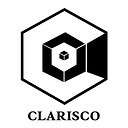Real Estate Tokenization
Real estate is incredibly complicated. Ask anyone who’s ever bought land or a home it’s time-consuming, complex, and also risky. Here the real estate agents, banks, and local government everyone need to check and sign off on-us transactions.
Real-World Blockchain in Real Estate:
The process of buying and selling is much easier if you are buying real estate. The rules are very daunting. They widely depend upon What City State or Country you’re looking to buy in What type of property you are hoping to buy and how you’re gonna buy it with all of these complexities and regulations.
Normally they require multiple middlemen to get involved you’re gonna be paying a large amount of money at every turn because it’s just too complex for more people to navigate alone.
Smart Contract in Real Estate:
The national housing rules and regulation or the blockchain here the smart contract used drastically and makes the process simple.
By using a contract the seller simply sends a location desired price and sends some ownership information to the contract pulling from the database of rules and regulation.
Here the buyer could then meet with the seller they agree on pricing in terms and then send their “digital signature” to the contract verifying their purchase and updating all the documents required. They require some backend work having provable and verifiable identities on the blockchain.
Secure Real Estate Tokenization:
India has looked into the blockchain as a possible solution to complicated land registry problems and they have many issues with property fraud “2013” “NEW DELHI” alone had “181” reported cases of property fraud “MUMBAI” also come a close second at “173”.
“ANDHRA PRADESH” and “TELANGANA” have partnered up with “SWEDISH” startup “ROMA” to put their land registry or blockchain.
One of many interesting innovations could be the introduction of cryptographically secure digital fingerprints.
The land alone hashes the geo-coordinates of this land so the hash is tied to the “owners ID” and the result is hashed again and added to the blockchain.
The hashes always have a unique value every plot of land and landowner will have a “unique ID” here no one can tamper with the records this would create a system of vertically owned land that could easily be transferred bought and sold in a cryptographically secure manner.
